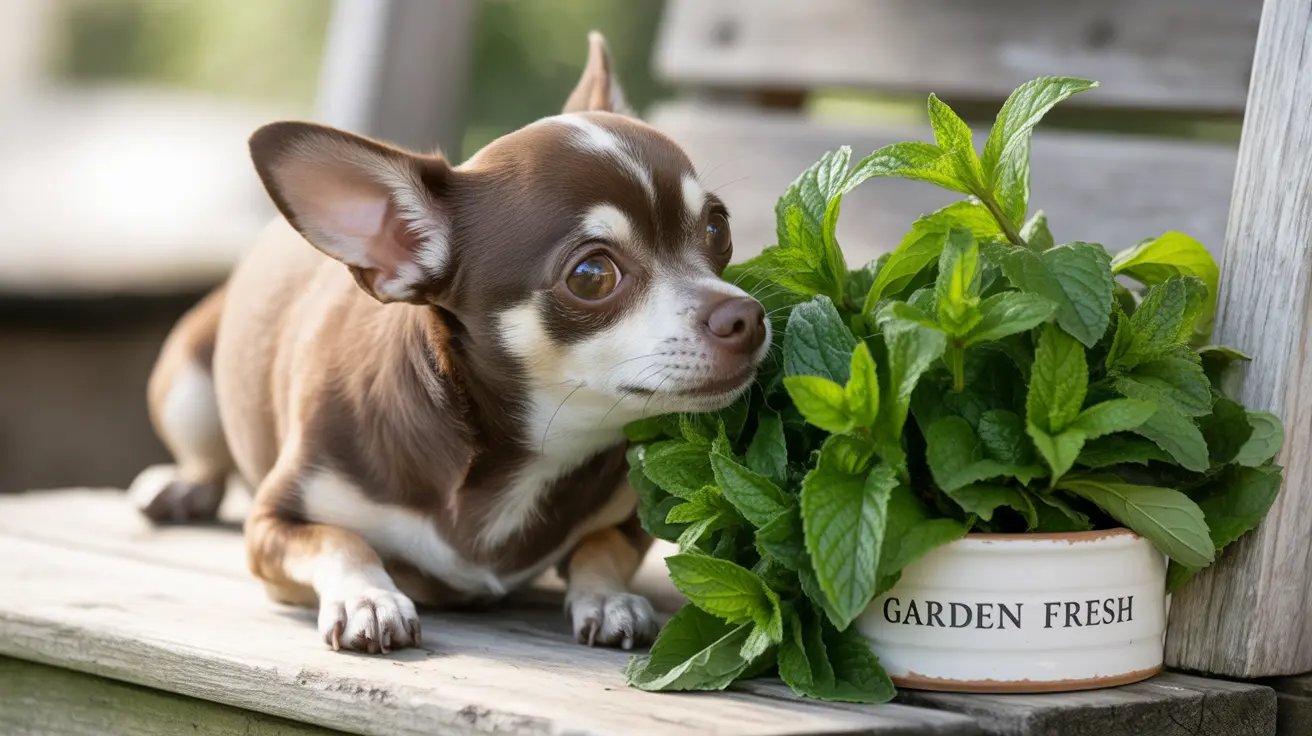As pet owners increasingly turn to natural remedies, many wonder about the safety of peppermint for their canine companions. While peppermint can offer certain benefits when used appropriately, it's crucial to understand both its potential advantages and risks to ensure your dog's safety.
This comprehensive guide will explore everything you need to know about peppermint and dogs, including safe usage guidelines, potential benefits, and important warning signs to watch for.
Understanding Peppermint and Its Effects on Dogs
Peppermint, in its various forms, can interact with dogs differently than with humans. While dogs can safely consume small amounts of properly prepared peppermint in certain forms, concentrated versions like essential oils require extreme caution.
The safety of peppermint largely depends on its form, concentration, and method of use. Natural peppermint leaves are generally safer than concentrated oils or artificial peppermint flavoring.
Safe Forms of Peppermint for Dogs
When it comes to peppermint products safe for dogs, several options exist:
- Fresh peppermint leaves (in very small quantities)
- Dog-specific dental products containing peppermint
- Properly diluted peppermint oil (under veterinary guidance)
- Veterinary-approved peppermint-containing products
Potential Benefits of Peppermint for Dogs
When used appropriately, peppermint may offer several benefits for dogs:
- Fresh breath and dental health
- Mild digestive support
- Natural cooling effect during hot weather
- Gentle aromatherapy benefits
Important Safety Precautions
To ensure your dog's safety when using peppermint products:
- Always consult your veterinarian first
- Never use concentrated essential oils without proper dilution
- Keep all peppermint products out of your dog's reach
- Monitor your dog for any adverse reactions
- Avoid human peppermint products entirely
When to Avoid Peppermint
Certain dogs should not be exposed to peppermint in any form:
- Puppies under 6 months
- Pregnant or nursing dogs
- Dogs with liver conditions
- Dogs with known sensitivities
- Dogs taking certain medications
Frequently Asked Questions
Is peppermint oil safe for dogs to ingest or use topically?
Peppermint oil should never be given to dogs to ingest. For topical use, it must be properly diluted (typically 1 drop of oil to 50 drops of carrier oil) and should only be used under veterinary guidance. Even then, only use therapeutic-grade oils from reputable sources.
How do I safely dilute peppermint oil for use on my dog?
The safe dilution ratio is typically 1 drop of peppermint oil to 50 drops of carrier oil (such as coconut or olive oil). However, always consult your veterinarian for specific dilution instructions based on your dog's size and health condition.
What are the potential health benefits of peppermint oil for dogs?
When used properly, peppermint oil may help with minor digestive issues, provide a cooling effect during hot weather, and offer aromatherapy benefits. However, these benefits should only be pursued under veterinary supervision.
Can peppermint oil be used to treat flea infestations in dogs?
While peppermint oil has some natural insect-repelling properties, it should not be used as a primary flea treatment. Stick to veterinary-approved flea treatments for safety and effectiveness.
What are the signs of peppermint oil toxicity in dogs, and how should I respond?
Signs of peppermint toxicity include vomiting, diarrhea, lethargy, difficulty breathing, and excessive drooling. If you notice any of these symptoms, seek immediate veterinary care. Also, keep the product container to show your veterinarian.
Conclusion
While peppermint can be safe for dogs when used appropriately, it's essential to exercise caution and always consult with your veterinarian before introducing any peppermint products into your dog's routine. Remember that natural doesn't always mean safe, and proper dosing and administration are crucial for your pet's wellbeing.






